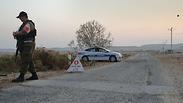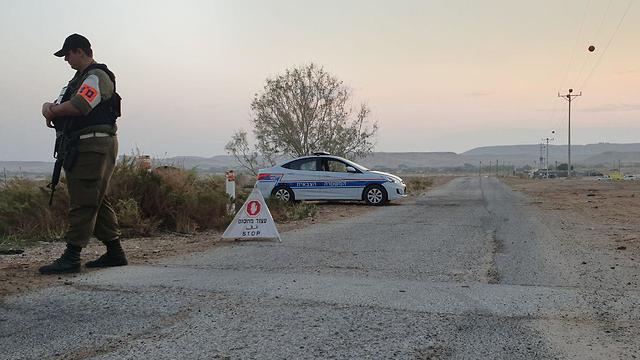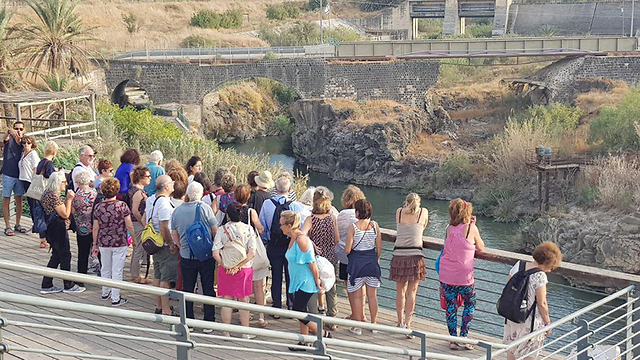

IDF declares Jordan Valley sites as 'closed military zone' as Israeli lease expires
Israeli farmers will still be able to cultivate parts of Naharayim and Tzofar, leased for 25 years by Israel from the Hashemite kingdom as part of 1994 peace treaty, until May 2020 despite the areas reverting to Jordanian control on Sunday
In October of last year, Jordan's King Abdullah notified Israel they would not renew the deal over Naharayim, a spit of land where the Jordan and Yarmuk rivers meet (called Baqura in Arabic) and a location deep in the Negev Desert south of the Dead Sea where Israeli farmers have large plantations, known in Hebrew as Tzofar and in Arabic as Ghumar.
Under the 1994 peace treaty, the two areas were recognized to be under Jordanian sovereignty but gave Israel special provisions to use the land and allow Israelis free access, while in the Naharayim area Israeli private property rights were respected.
The change, however, would affect members of Israeli agricultural communities only at the start of next year. According to an agreement (in principle) between the two countries, 31 Israeli farmers will be allowed to continue cultivating some 1500 dunams (370,000 acres) of land in the area until May 2020.
The army closed the gates leading to the Isle of Peace park on Saturday afternoon, shortly after hundreds of Israeli tourists visited the area for the last time as part of organized “farewell” tours.
Idan Grinbaum, head of the Israeli regional council for the Jordan Valley, earlier said Jordanian officials have told him that as of Saturday night, the Naharayim site will be out of bounds. "As of this time no Israeli official has met with us or issued a letter on the topic," he said in a statement.
Grinbaum said that since Abdullah's October declaration "there were enough opportunities to change the decree but unfortunately that didn't happen".
Reuters and AFP contributed to this report

















